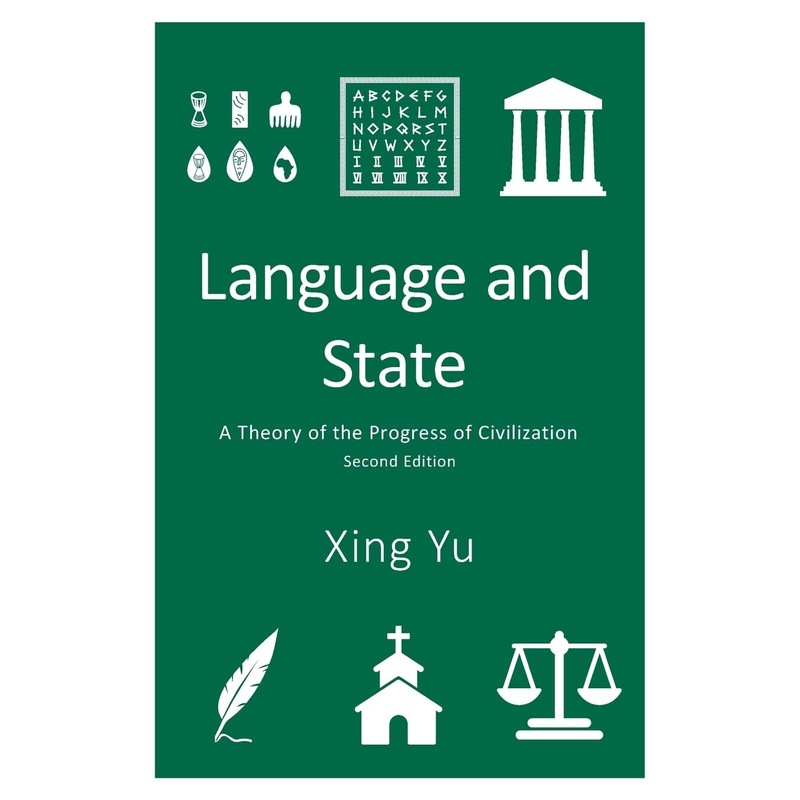



Language and State: A Theory of the Progress of Civilization, Second Edition, argues that the state takes form because of language. It argues that since humans began to use language, they have been able to create and use media. Media include materials, human behavior, human consciousness and humans themselves. Media extend the distance of linguistic communication and then humans interact with one another on a large scale and form themselves into a large community. This leads to the formation of the state and the dissolution of tribes. Linguistic communication then structures human interactions in the formation of the state. Humans exchange information with one another, give interpretations, display attitudes and make promises to one another. They even allow for one person to issue commands to all others. Humans organize the state in various types of linguistic interaction, which further create a condition for the formation of the common interest of all: a foundation for the building of the state. Then, humans rationalize the organization of the state in extending the distance of linguistic communication. Humans realize freedom, equality, peace, democracy and justice in their mutual linguistic interactions. Language gives origin to the state and sustains the development of the state. Language has preset the whole process of the progress of human civilization.
P>About the Author: Xing Yu is an independent researcher who resides in the Province of British Columbia, Canada. He is the author of the book Language and State: An Inquiry into the Progress of Civilization, Second Edition. The book Language and State: A Theory of the Progress of Civilization, Second Edition is a follow-up to the book Language and State: An Inquiry into the Progress of Civilization, Second Edition.
We ship Australia-wide, including all major cities such as Sydney, Melbourne, Brisbane, Perth, Adelaide, Canberra, Newcastle, and the Gold Coast.
Same-Day Dispatch:
Orders placed before 12pm (AEST) are guaranteed to ship the same business day. Orders placed up until 1pm often still ship same day, but this is not guaranteed.
Estimated Delivery Timeframe:
• Metro areas in major cities like Melbourne, Sydney, Brisbane, and Canberra typically receive their orders within 1–2 business days.
• Regional and rural areas, or deliveries to states such as WA, SA, NT, and TAS, may take up to 10 business days, depending on location and courier performance.
Delivery times may vary slightly during peak periods, but we always aim to get your order to you as quickly as possible.
We offer a 30-day satisfaction guarantee on all purchases.
Returns:
Returns are accepted within 30 days of receiving your item. Items must be returned in their original packaging and in the same condition as when they were received. Change-of-mind returns are accepted only for items that are new and sealed. Items that are used or no longer in their original condition may not be eligible for a full refund.
Defective Items:
If your item arrives damaged or faulty, please contact us as soon as possible, and we’ll arrange a return or replacement where applicable.
Warranty:
We do not provide warranty coverage beyond the initial 30-day period. For any issues arising after this time, warranty claims must be made directly with the manufacturer in accordance with their terms.
Estimated Delivery Time Frame: 5 - 10 business days